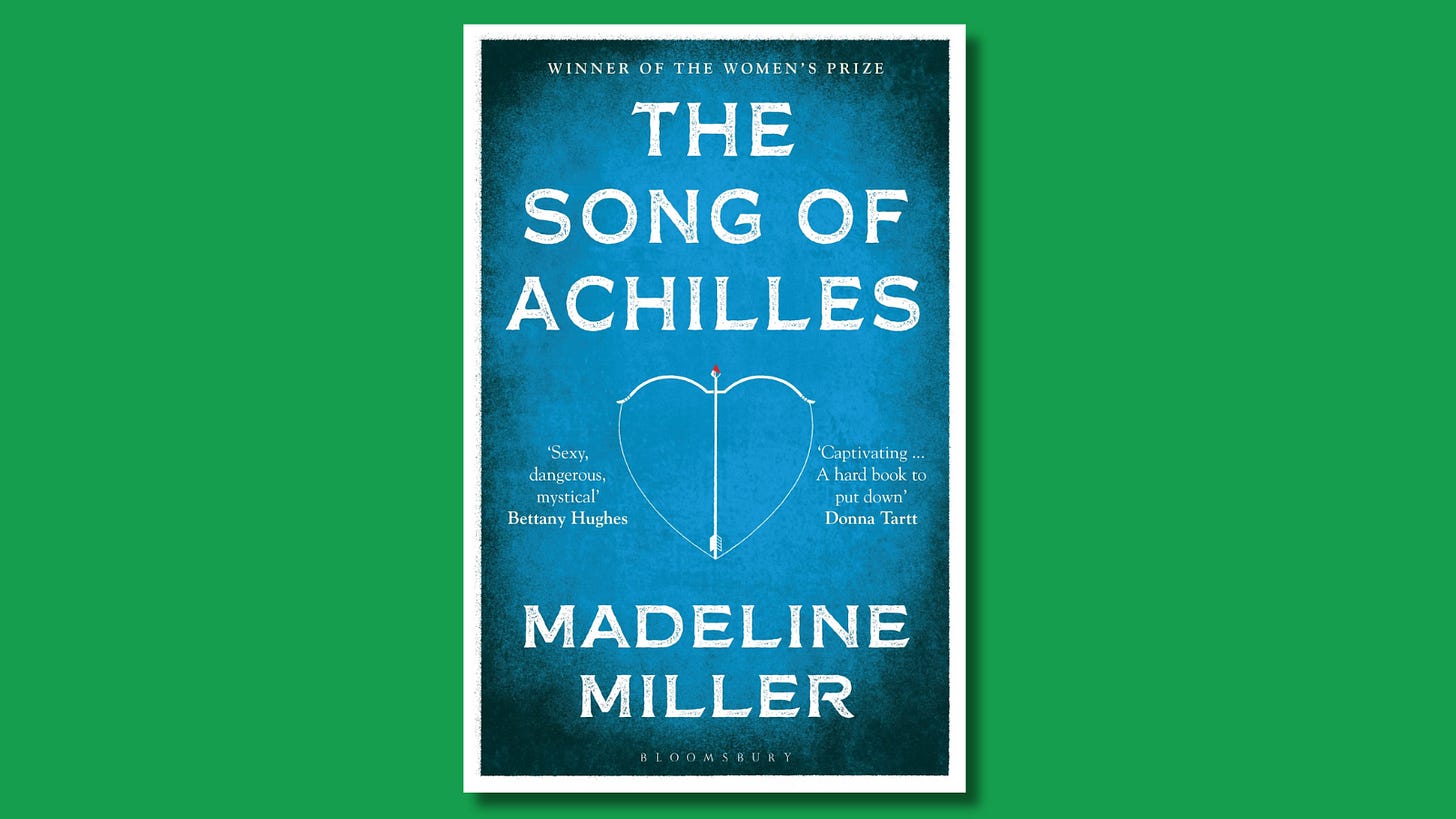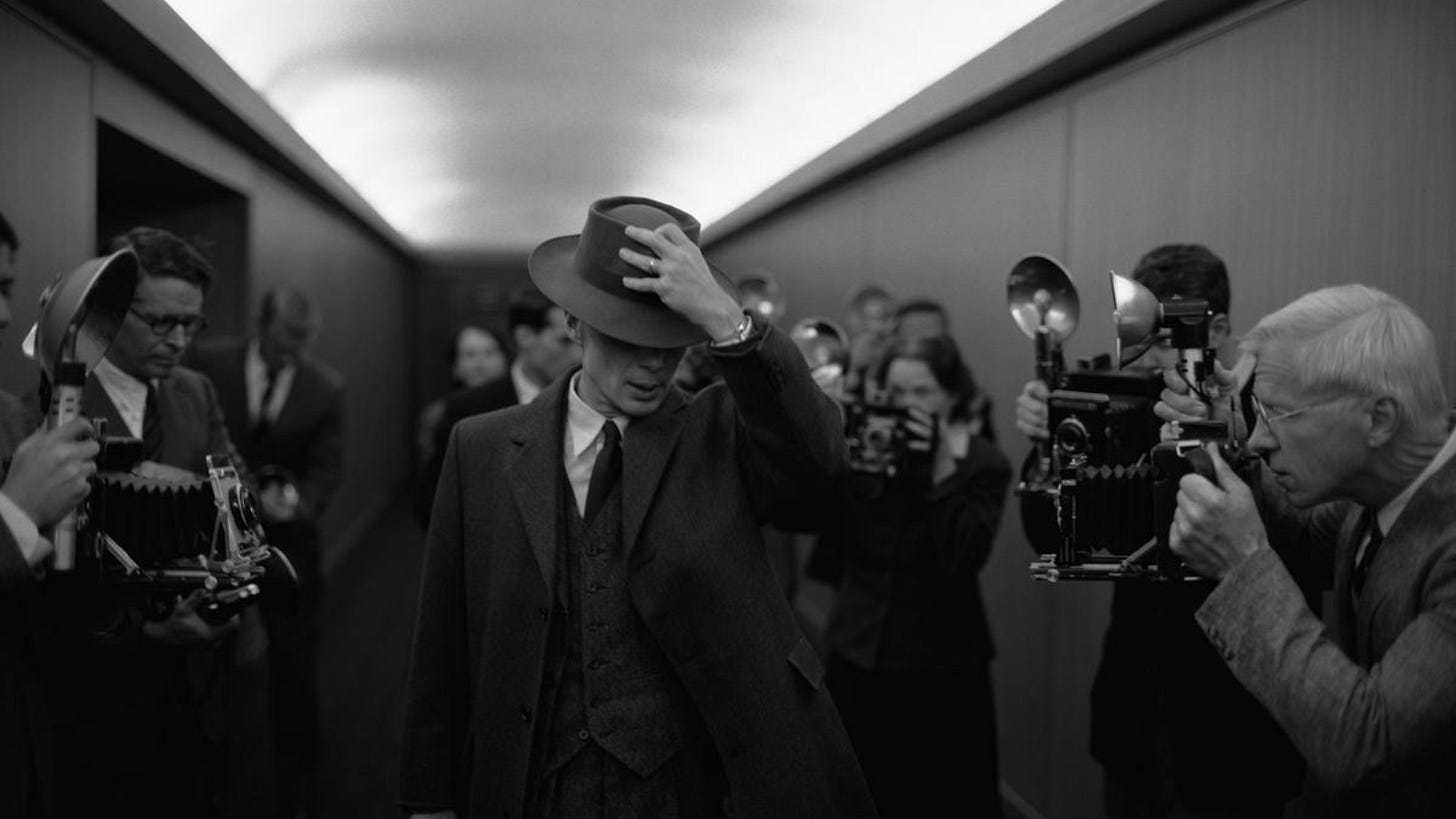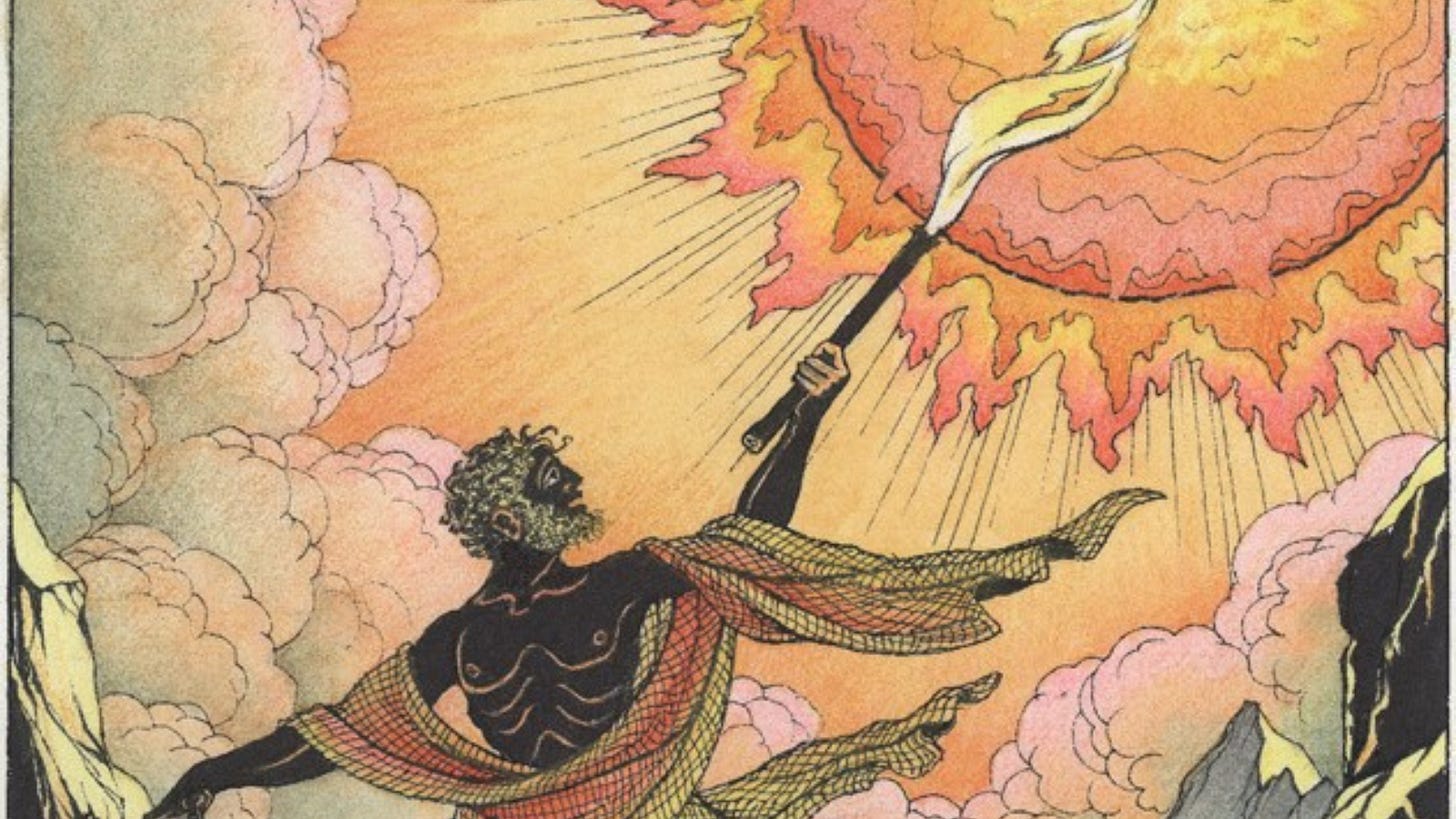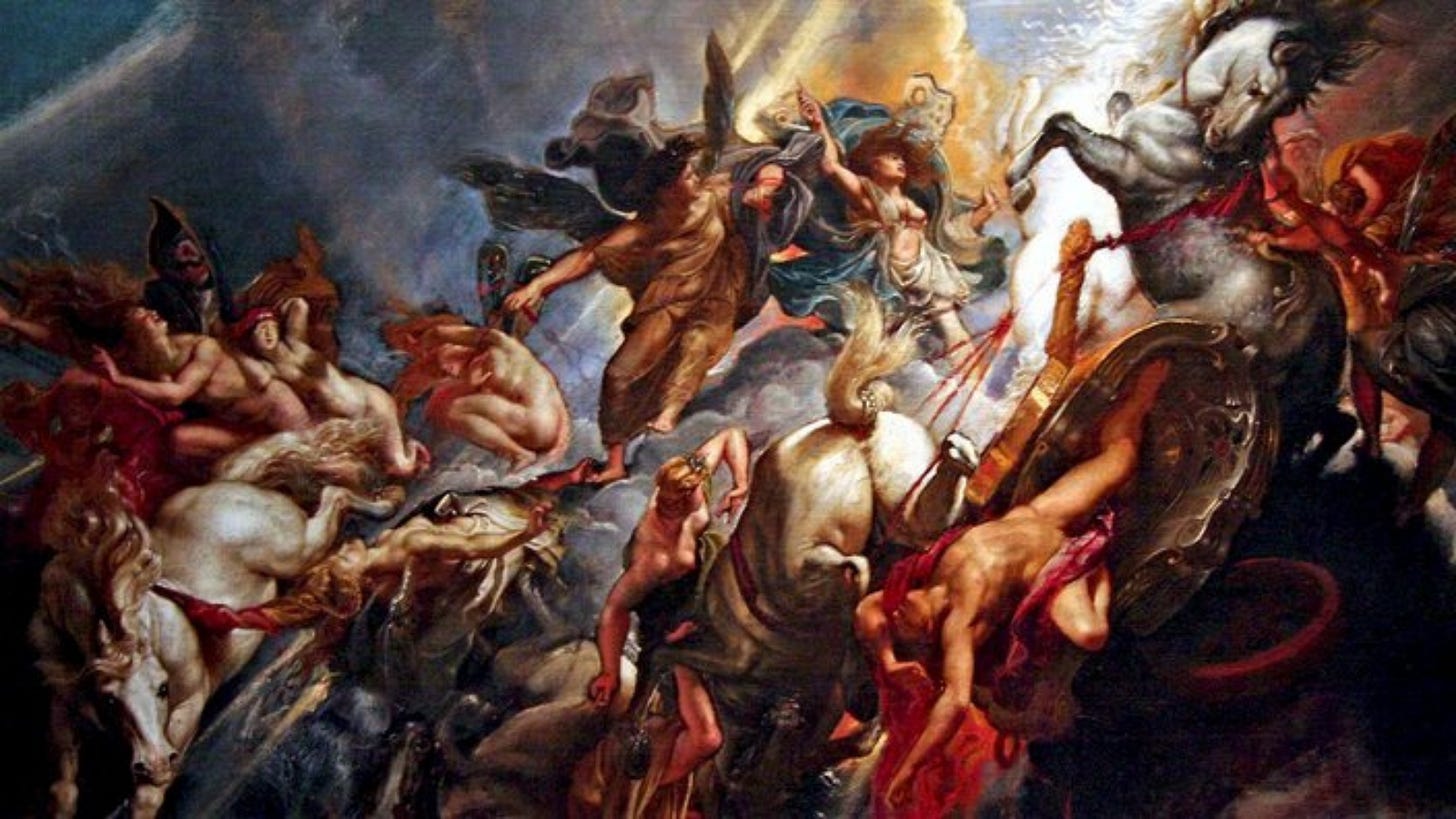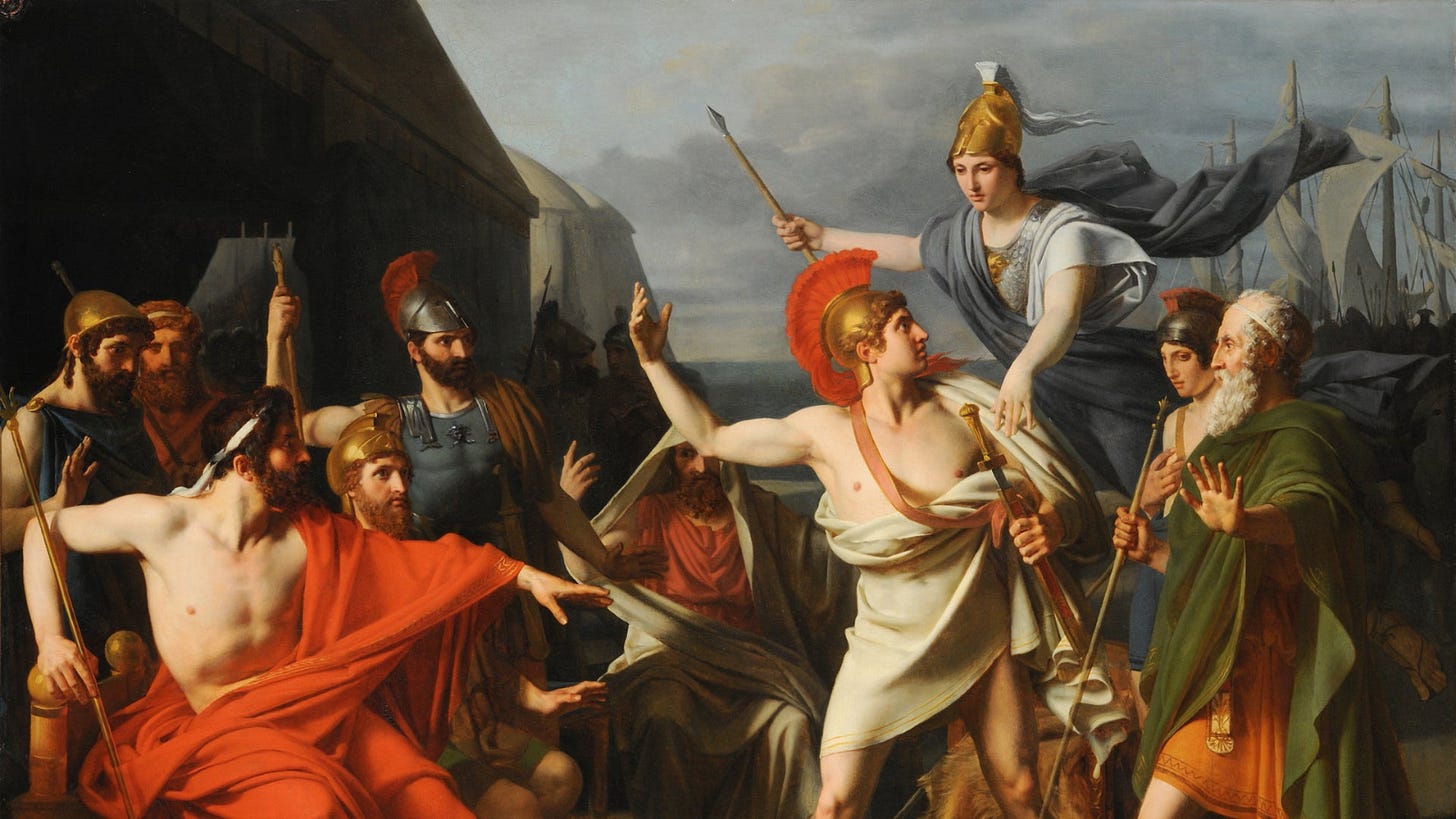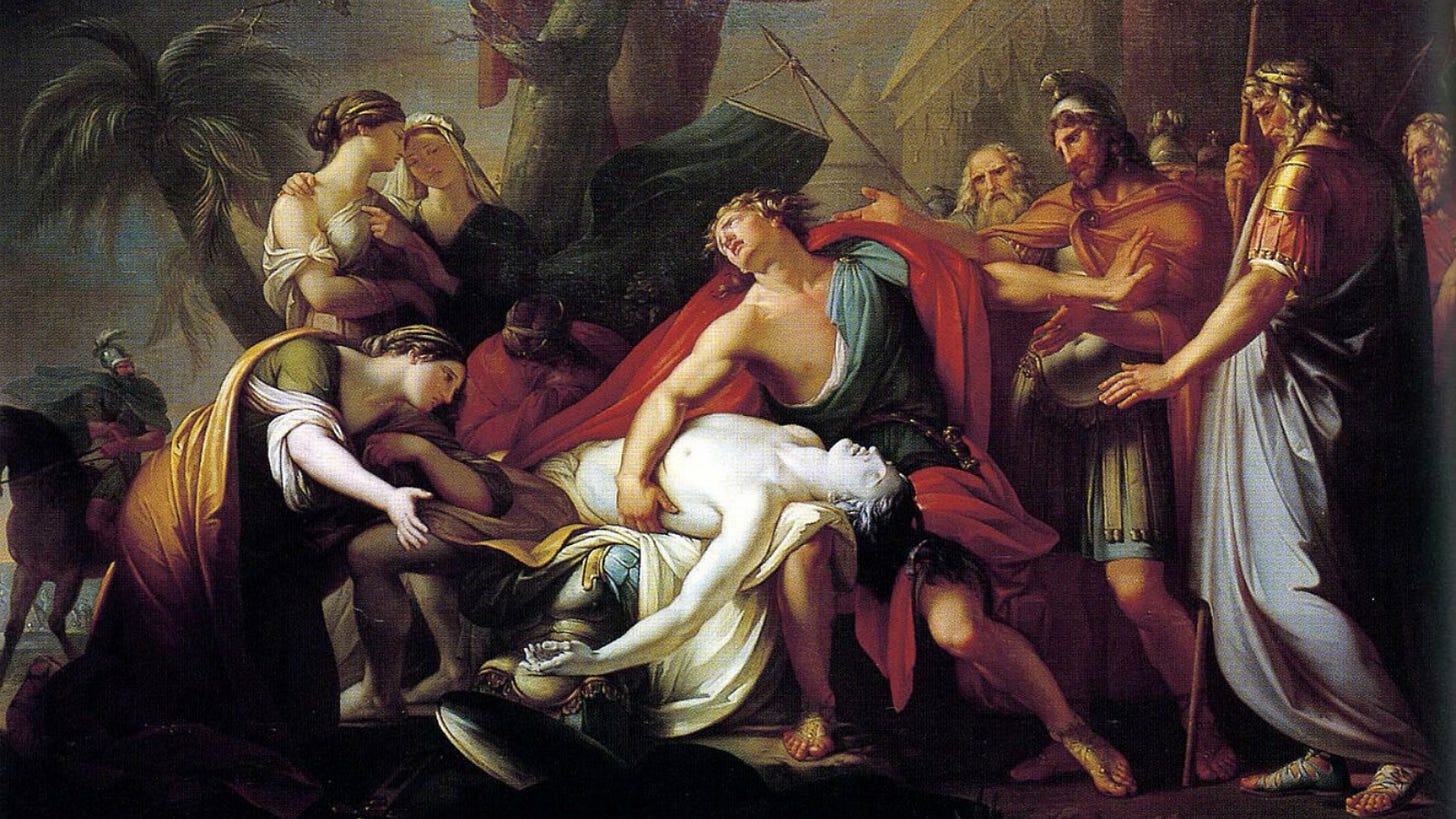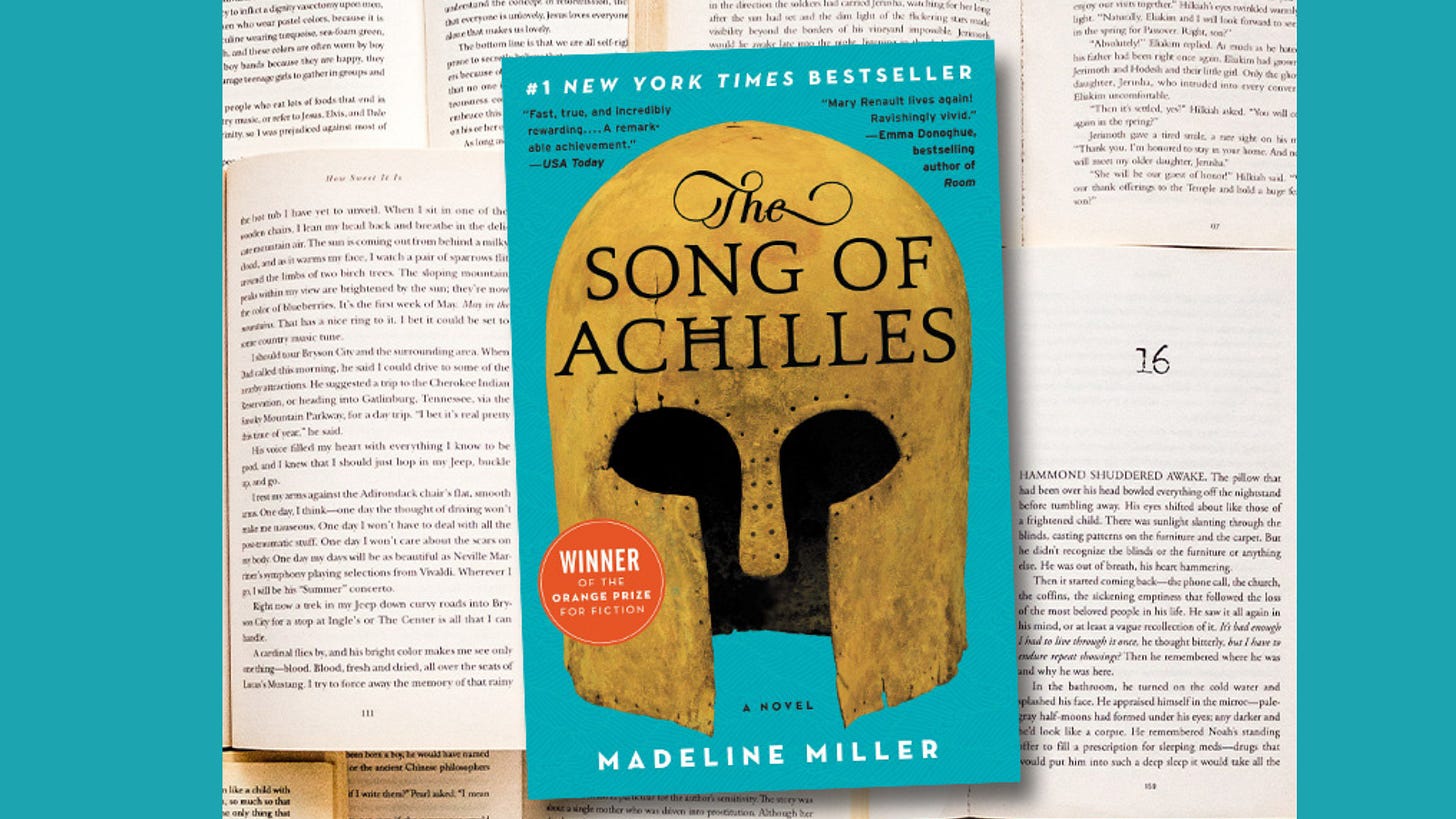What Oppenheimer, Prometheus and Achilles all have in common.
Like everyone else on the planet, I went to see Oppenheimer last week. The film follows the life of J. Robert Oppenheimer the ‘father of the atomic bomb’ played by Cillian Murphy. When we left the theatre, Lawrence, my boyfriend, turned to me and asked, ‘Is he good?’. We had just spent three hours watching Christopher Nolan’s portrayal of Oppenheimer’s life, yet we walked out perplexed. Was this man a hero or a villain? Is he good or evil?
I have little doubt that Nolan intended to leave his viewers with this conundrum. In fact, the whole film centred around Oppeimheimer’s “moral quandary” - The Guardian’s words, not mine. Oppenheimer’s predicament is most clearly brought to life on screen when fellow scientist Edward Teller, played by Benny Safdie, shouts ‘No one knows what you think!’ to which the physicist has no response. The bombs have dropped in Japan and now he must face the inconceivable consequences of being responsible for creating the most destructive weapon ever made.
I know what you’re thinking. Why is she talking about a film? Isn’t this supposed to be a newsletter about books and storytelling? Don’t worry, I’m getting to it.
In the film, Oppenheimer is referred to as the ‘American Prometheus’, a direct reference to the Pulitzer Prize-winning book on which the movie is based, American Prometheus: The Triumph and Tragedy of J. Robert Oppenheimer. In Greek mythology, Prometheus stole fire from the gods and gave it to humanity in the form of technology and knowledge. He assumed that by giving humans fire he was helping them to progress and move forward, but like Oppenheimer he was naive.
This brings us back to Lawrence’s initial question, is Oppenheimer a hero or a villain? And, what about Prometheus? Was he right to give humans the power of fire? I’ll leave you to ponder that, while I address another question, one that is more relevant to this newsletter. Why, out of all the stories he could have told, did Christopher Nolan decide to tell this one?
Enter the flawed hero.
I don’t know about you, but I’ve never really liked stereotypical heroes. They tend to be morally superior, lacking in charm, and on the whole pretty vain and predictable. Historically, they also tend to be heterosexual males, but that’s a topic for another newsletter.
What makes a hero’s character interesting is not merely their ability to save the day, but what makes them and the challenges they face unique and different to all the heroes that have come before them. In his book Into the Woods, the screenwriter John Yorke says that for a character to be three-dimensional, they must be flawed. In other words, flaws are key to crafting great characters and the hero is no exception.
If you’re a writer looking for inspiration for your flawed hero, there is no better place to look than the world of Greek Mythology. Almost every Greek god is celebrated for having achieved a heroic task that elevates them from the realm of mere mortals. At the same time, you’d be hard-pressed to find one that hasn’t also committed a villainous act which equals, if not outweighs, their heroism.
There are a plethora of these flawed characters to choose from, which might explain why retellings of Greek myths have become staples of modern bestseller lists. Madeline Miller’s, The Song of Achilles, is one example of a retelling that continues to capture the attention of the book world. First winning the Women’s Prize for Fiction in 2012 and then, more recently, resurfacing in a viral TikTok video called ‘Books that will make you sob’ by @moongirlreads.
The Song of Achilles is a retelling of Homer’s Iliad told from the perspective of Achilles’ companion (lover in Miller’s version) Patroclus. Whereas Homer’s Iliad primarily focuses on the last part of Achilles’ life and the vengeful and violent side of the character, Miller’s interpretation covers Achilles’ whole life and primarily focuses on the untold love story between him and Patroclus.
Miller’s version of Achilles is far more complex and absorbing than the heartless, revenge-seeking warrior in the original version. I’d like to take a moment to discuss the ways Miller managed to transform Achilles into a three-dimensional, flawed hero.
1. PERSPECTIVE AND PATROCLUS
Miller cleverly tells the Achilles story through the eyes of the person who loves him the most. Patroclus’ deep understanding of who Achilles is, allows him to empathetically unpack the reasons behind the hero’s actions. As a result, we root for Achilles, not only because we can relate to this version of him on a human level, but also because we feel sympathetic towards Patroclus.
‘But how is there glory in taking a life? … Let the stories of him be something more … Returning Hector’s body to Priam, … that should be remembered.’ pg. 349
Because of Achilles' clear unconditional love for Patroclus, using Patroclus’ perspective also constantly reminds us that Achilles is capable of love, further pulling at our heartstrings and making us root for the character.
2. AT ODDS WITH DESTINY
There are several moments throughout the novel where Achilles and those around him question whether or not he should fulfil his destiny - to be the greatest warrior of all time. By raising this question, Miller explores Achilles’ own moral quandary.
‘For the first time he dreams of killing … I cannot escape the feeling that, below the surface, something is breaking’ - Patroclus, pg. 289.
Exploring the moral consequences of Achilles’ destiny deepens the complexity of Achilles’ character and adds a new dimension to the story that makes it more absorbing for the reader. Achilles understands that killing people is bad, yet ultimately he chooses to do it anyway because being a warrior is intrinsically tied to his sense of honour and pride. Just like Oppenheimer, his morals continuously contradict his actions - this makes him problematic, terrible and also, the perfect leading character.
3. WEAVING IN A BACKSTORY
Finally, by giving Achilles a backstory and spending time setting up who he was before he becomes a warrior, Miller creates a more balanced depiction of the character. A large section of the book is devoted to the time that Patroclus and Achilles are living in the mountains with Chiron, the centaur. It is in these chapters that we see the happiest version of Achilles, and the idea that Achilles’ personality and passions may be at odds with his destiny is reinforced.
‘We were like gods, at the dawning of the world, and our joy was so bright we could see nothing else but the other’ - Patroclus, pg. 96.
Showing the light as well as the dark, in Achilles, is another way Miller creates a three-dimensional character. Demonstrating that the hero is flawed and vulnerable also establishes a more emotionally driven narrative throughout the book - which might explain all the sobbing on TikTok.
SO, WHY WAS THIS BOOK PUBLISHED?
The Song of Achilles short digestible chapters, dream-like mythological settings and the action-packed plot have all doubtlessly contributed to its commercial success. However, for me, it’s Miller’s fresh exploration of the flawed hero, Achilles, that set this story apart from other retellings.
READ ALONG WITH ME
If you enjoyed deep diving into the storytelling of The Song of Achilles, why not read along with me? Next time I’ll be talking about Marian Keyes and why the world is so enamoured with her stories.



